Health
To reduce cancer risk, researchers recommend adopting these 4 healthy habits
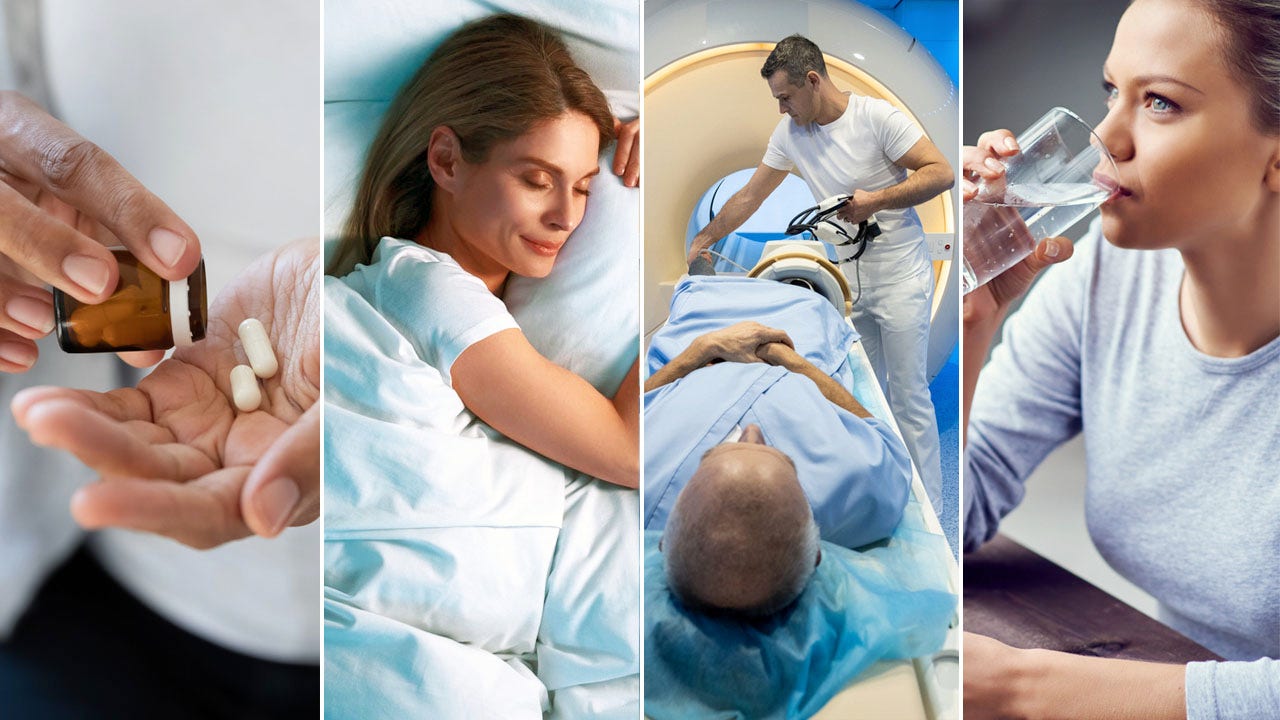
While some cancers are driven by genetics, studies have shown that up to half of all cases are caused by behavioral risk factors — which means they’re preventable.
Doctors recommend some common lifestyle changes to prevent cancer, such as not smoking, eating nutritious foods, wearing sun protection and limiting exposure to carcinogens — but each person’s means of reducing risk can look different.
Researchers at Mass General Brigham have compiled four specific, research-backed strategies for reducing risk.
BREAST CANCER DIAGNOSES SPIKING AMONG WOMEN UNDER 50, NEW REPORT REVEALS
1. Stay on top of preventive screenings
Procrastination is one of the top reasons for missed cancer screenings, research has shown.
Researchers at Mass General Brigham have compiled four specific, research-backed strategies for reducing risk. (iStock)
For example, colon cancer is the second leading cause of cancer death in Black individuals in the U.S., but many do not get the recommended screenings.
A study by Dr. Adjoa Anyane-Yeboa, a gastroenterologist at Massachusetts General Hospital (MGH), found that “self-reported procrastination” was the primary reason for the skipped screenings, fueled by “financial concerns, COVID-19 concerns and fear of both the test and bowel preparation.”
DRINKING ALCOHOL IS LINKED TO SIX TYPES OF CANCER, EXPERTS SAY: ‘IT’S TOXIC’
“The key takeaway from this study is that all providers should discuss colorectal cancer screening at regular intervals with all of their patients, because early detection through screening saves lives,” Anyane-Yeboa told Fox News Digital.
“To reduce their cancer risk, all people should be screened starting at age 45 and talk to their families about their family history to figure out if they need to be screened earlier.”
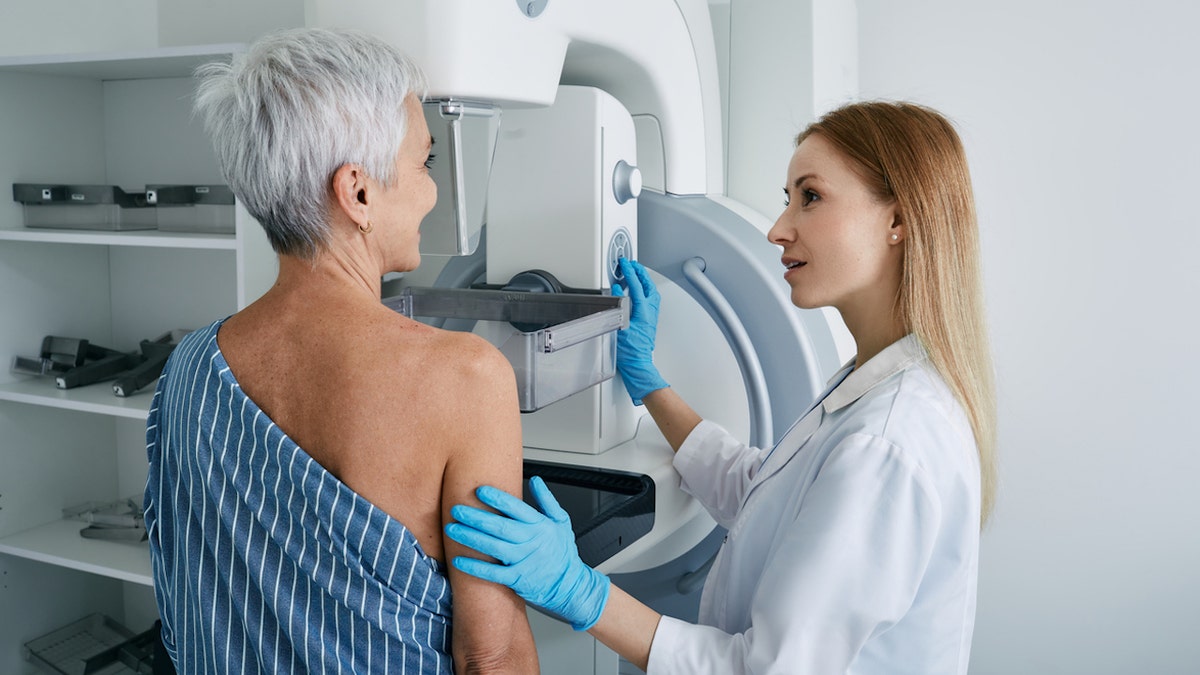
Screening guidelines for other types of cancers can be found on the American Cancer Society website. (iStock)
“Colorectal cancer is preventable with screening, and screening really does save lives.”
Screening guidelines for other types of cancers can be found on the American Cancer Society website.
2. Improve your sleep health
Insufficient or poor-quality sleep has been linked to a higher risk of developing cancers.
Heming Wang, PhD, assistant professor of medicine at Brigham and Women’s Hospital (BWH), led a research team that examined the impact of insomnia on ovarian cancer risk.
OVARIAN CANCER SIGNS, SYMPTOMS, DIAGNOSIS AND TREATMENT OPTIONS
“Insomnia is a common sleep disorder among ovarian cancer patients,” Wang told Fox News Digital.
“Our research revealed that insomnia increases the risk of a specific subtype of ovarian cancer and is associated with reduced survival in patients,” he went on.

Insufficient or poor-quality sleep has been linked to a higher risk of developing cancers. (iStock)
“These findings highlight the importance of addressing insomnia in the prevention and management of ovarian cancer.”
Based on these findings, seeking treatment for insomnia can help reduce the risk of certain types of ovarian cancer, according to the researchers.
3. Know the risks and benefits of daily aspirin use
Research has shown that regularly taking aspirin or another non-steroidal anti-inflammatory drug (NSAID) can reduce the risk of developing colorectal cancer — but it can also lead to dangerous side effects, such as bleeding and inflammation.
“It is important to know if you are more likely to benefit from daily aspirin use,” according to MGH.
LEUKEMIA PATIENT RECEIVES FIRST-EVER BONE MARROW TRANSPLANT FROM DECEASED ORGAN DONOR
Daniel Sikavi, MD, and Andrew Chan, MD, of MGH, led a study that explored the link between aspirin and colon cancer risk.
“Our results suggested that people with a less healthy lifestyle — higher body mass index, more smoking, greater alcohol use, less physical activity and poorer diet quality — had a greater absolute benefit from aspirin use in reducing their risk of colorectal cancer,” Sikavi told Fox News Digital.
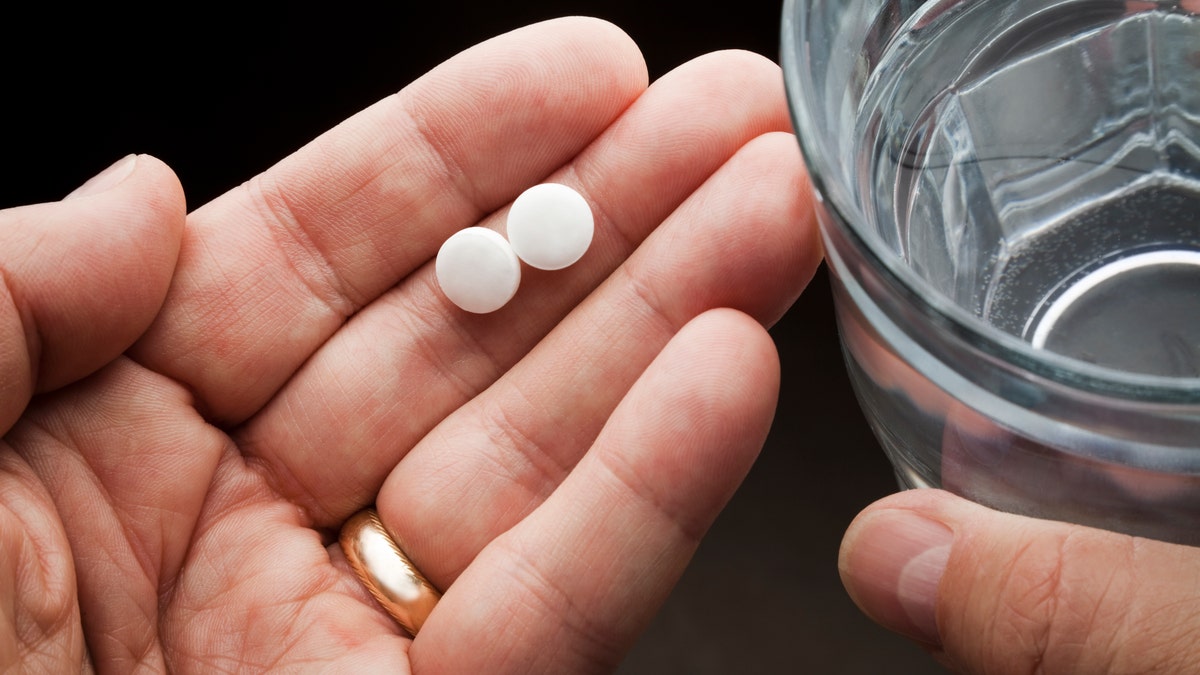
Research has shown that regularly taking aspirin can reduce the risk of developing colorectal cancer — but it can also lead to dangerous side effects. (iStock)
People with a healthier lifestyle had a lower overall risk of colon cancer, the researchers found, but regular aspirin use didn’t have the same protective effects for that group.
“This work is an important example of a more personalized approach to cancer prevention by targeting effective prevention strategies to populations that are the most likely to benefit,” Sikavi noted.
4. Cut down on sugar-sweetened beverages
More than half of the U.S. population consumes sugar-sweetened beverages (SSBs) on any given day, studies have shown.
Research by the American Cancer Society (ACS) found that men and women who drank two or more servings of SSBs per day had a 5% higher risk of dying from an obesity-related cancer.
“Despite their sweet taste, sugary drinks pose significant health risks,” Longgang Zhao, PhD, a researcher at Brigham and Women’s Hospital, told Fox News Digital.
CLICK HERE TO SIGN UP FOR OUR HEALTH NEWSLETTER
“Researchers have already linked the beverages to obesity, diabetes and heart disease.”
Zhao recently led a study that investigated the link between sugar-sweetened beverages and liver cancer risk among postmenopausal women.

Research has found that men and women who drank two or more servings of sugar-sweetened beverages per day had a 5% higher risk of dying from an obesity-related cancer. (iStock)
“In our current study using data from the Women’s Health Initiative prospective cohort, we found that postmenopausal women who drank one or more sugar-sweetened beverages per day had a higher risk of developing liver cancer and dying of chronic liver disease than those who drank less than three or fewer sugar-sweetened beverages per month,” he said.
For more Health articles, visit www.foxnews.com/health
“If a causal link is established between sugary drinks and liver disease, the broader implications for global public health initiatives are substantial.”

Health
How Naomi Feil Developed a Radical Approach to Caring for Dementia Patients

Before the answers to life’s questions fit in our pocket, you used to have to turn a dial. If you were lucky, Phil Donahue would be on, ready to guide you toward enlightenment. In a stroke of deluxe good fortune, Dr. Ruth Westheimer might have stopped by to be the enlightenment. He was the search engine. She was a trusted result.
Donahue hailed from Cleveland. The windshield glasses, increasingly snowy thatch of hair, marble eyes, occasional pair of suspenders and obvious geniality said “card catalog,” “manager of the ’79 Reds,” “Stage Manager in a Chevy Motors production of ‘Our Town.’” Dr. Ruth was Donahue’s antonym, a step stool to his straight ladder. She kept her hair in a butterscotch helmet, fancied a uniform of jacket-blouse-skirt and came to our aid, via Germany, with a voice of crinkled tissue paper. Not even eight years separated them, yet so boyish was he and so seasoned was she that he read as her grandson. (She maybe reached his armpit.) Together and apart, they were public servants, American utilities.
Donahue was a journalist. His forum was the talk show, but some new strain in which the main attraction bypassed celebrities. People — every kind of them — lined up to witness other people being human, to experience Donahue’s radical conduit of edification, identification, curiosity, shock, wonder, outrage, surprise and dispute, all visible in the show’s televisual jackpot: cutaways to us, reacting, taking it all in, nodding, gasping. When a celebrity made it to the “Donahue” stage — Bill Clinton, say, La Toya Jackson, the Judds — they were expected to be human, too, to be accountable for their own humanity. From 1967 to 1996, for more than 6,000 episodes, he permitted us to be accountable to ourselves.
What Donahue knew was that we — women especially — were eager, desperate, to be understood, to learn and learn and learn. We call his job “host” when, really, the way he did it, running that microphone throughout the audience, racing up, down, around, sticking it here then here then over here, was closer to “switchboard operator.” It was “hot dog vendor at Madison Square Garden.” The man got his steps in. He let us do more of the questioning than he did — he would just edit, interpret, clarify. Egalitarianism ruled. Articulation, too. And anybody who needed the mic usually got it.
The show was about both what was on our mind and what had never once crossed it. Atheism. Naziism. Colorism. Childbirth. Prison. Rapists. AIDS. Chippendales, Chernobyl, Cher. Name a fetish, Phil Donahue tried to get to its bottom, sometimes by trying it himself. (Let us never forget the episode when he made his entrance in a long skirt, blouse and pussy bow for one of the show’s many cross-dressing studies.) Now’s the time to add that “Donahue” was a morning talk show. In Philadelphia, he arrived every weekday at 9 a.m., which meant that, in the summers, I could learn about compulsive shopping or shifting gender roles from the same kitchen TV set as my grandmother.
Sex and sexuality were the show’s prime subjects. There was so much that needed confessing, correction, corroboration, an ear lent. For that, Donahue needed an expert. Many times, the expert was Dr. Ruth, a godsend who didn’t land in this country until she was in her late 20s and didn’t land on television until she was in her 50s. Ruth Westheimer arrived to us from Germany, where she started as Karola Ruth Siegel and strapped in as her life corkscrewed, as it mocked fiction. Her family most likely perished in the Auschwitz death camps after she was whisked to the safety of a Swiss children’s home, where she was expected to clean. The twists include sniper training for one of the military outfits that would become the Israel Defense Forces, maiming by cannonball on her 20th birthday, doing research at a Planned Parenthood in Harlem, single motherhood and three husbands. She earned her doctorate from Columbia University, in education, and spent her postdoc researching human sexuality. And because her timing was perfect, she emerged at the dawn of the 1980s, an affable vector of an era’s craze for gnomic sages (Zelda Rubinstein, Linda Hunt, Yoda), masterpiece branding and the nasty.
Hers was the age of Mapplethorpe and Madonna, of Prince, Skinemax and 2 Live Crew. On her radio and television shows, in a raft of books and a Playgirl column and through her promiscuous approach to talk-show appearances, she aimed to purge sex of shame, to promote sexual literacy. Her feline accent and jolly innuendo pitched, among other stuff, the Honda Prelude, Pepsi, Sling TV and Herbal Essences. (“Hey!” she offers to a young elevator passenger. “This is where we get off.”) The instructions for Dr. Ruth’s Game of Good Sex says it can be played by up to four couples; the board is vulval and includes stops at “Yeast Infection,” “Chauvinism” and “Goose Him.”
On “Donahue,” she is direct, explicit, dispelling, humorous, clear, common-sensical, serious, vivid. A professional therapist. It was Donahue who handled the comedy. On one visit in 1987, a caller needs advice about a husband who cheats because he wants to have sex more often than she does. Dr. Ruth tells Donahue that if the caller wants to keep the marriage, and her husband wants to do it all the time, “then what she should do is to masturbate him. And it’s all right for him to masturbate himself also a few times.” The audience is hear-a-pin-drop rapt or maybe just squirmy. So Donahue reaches into his parochial-school-student war chest and pulls out the joke about the teacher who tells third-grade boys, “Don’t play with yourself, or you’ll go blind.” And Donahue raises his hand like a kid at the back of the classroom and asks, “Can I do it till I need glasses?” Westheimer giggles, maybe noticing the large pair on Donahue’s face. This was that day’s cold open.
They were children of salesmen, these two; his father was in the furniture business, hers sold what people in the garment industry call notions. They inherited a salesman’s facility for people and packaging. When a “Donahue” audience member asks Westheimer whether her own husband believes she practices what she preaches, she says this is why she never brings him anywhere. “He would tell you and Phil: ‘Do not listen to her. It’s all talk,’” which cracks the audience up.
But consider what she talked about — and consider how she said it. My favorite Dr. Ruth word was “pleasure.” From a German mouth, the word conveys what it lacks with an American tongue: sensual unfurling. She vowed to speak about sex to mass audiences using the proper terminology. Damn the euphemisms. People waited as long as a year and a half for tickets to “Donahue” so they could damn them, too. But of everything Westheimer pitched, of all the terms she precisely used, pleasure was her most cogent product, a gift she believed we could give to others, a gift she swore we owed ourselves.
I miss the talk show that Donahue reinvented. I miss the way Dr. Ruth talked about sex. It’s fitting somehow that this antidogmatic-yet-priestly Irish Catholic man would, on occasion, join forces with a carnal, lucky-to-be-alive Jew to urge the exploration of our bodies while demonstrating respect, civility, reciprocation. They believed in us, that we were all interesting, that we could be trustworthy panelists in the discourse of being alive. Trauma, triviality, tubal ligation: Let’s talk about it! Fear doesn’t seem to have occurred to them. Or if it did, it was never a deterrent. Boldly they went. — And with her encouragement, boldly we came.
Wesley Morris is a critic at large for The New York Times and a staff writer for the magazine.
Health
Eggs now qualify as ‘healthy’ food, FDA says: Here’s why

While eggs haven’t historically been considered a “health food,” the U.S. Food and Drug Administration (FDA) now classifies them as a “healthy, nutrient-dense” food, according to a new proposed rule.
The update is the result of changes in nutrition science and dietary recommendations, according to the agency.
The FDA’s “healthy” designation for food labeling purposes has been in use since the early 1990s.
‘I’M A HEART SURGEON, HERE’S WHAT YOU SHOULD KNOW ABOUT EGGS, YOUR HEART AND YOUR HEALTH’
“Healthy diets are made up of a variety of food groups and nutrients, and the ‘healthy’ claim can help consumers identify those foods that are the foundation of healthy dietary patterns,” the agency stated in its guidance.
The U.S. Food and Drug Administration now classifies eggs as a “healthy, nutrient-dense” food, according to a new proposed rule. (iStock)
“On behalf of America’s egg farmers, we are thrilled to see the U.S. Food and Drug Administration announce that eggs meet the updated definition of ‘healthy,’” said Emily Metz, president and CEO of the American Egg Board, in a statement sent to Fox News Digital.
“This is an important milestone for eggs, bringing current nutrition science and federal dietary guidance into alignment, and affirming eggs’ role in supporting the health of American families, with nutritional benefits for everyone.”
5 EGG MYTHS DISPELLED BY AN EXPERT, PLUS TIPS FOR EVERY EGG LOVER
Metz referred to eggs as a “nutritional powerhouse,” noting that they contain eight essential nutrients that support health at every age.
“Eggs are particularly known for being one of the highest quality proteins available, playing a vital role in muscle health and overall wellness,” she added.
“This is a significant milestone, as eggs are an affordable source of high-quality protein and a rich source of nutrients.”
Tanya Freirich, a registered dietitian nutritionist in Charlotte, North Carolina, who practices as The Lupus Dietitian, noted that eggs are a “fantastic source” of protein, choline, B vitamins and selenium, as well as a “fair source” of vitamin D, vitamin E, calcium and zinc.
“While in the past, many people were told to avoid eggs due to their cholesterol content, in more recent years, research has shown that dietary cholesterol intake does not increase your blood levels of cholesterol as much as previously understood,” she told Fox News Digital.
“Eggs, especially pasture-raised or omega 3-enriched, are particularly nutritious.”

The president and CEO of the American Egg Board referred to eggs as a “nutritional powerhouse,” noting that they contain eight essential nutrients that support health at every age. (iStock)
While eggs are a “superior” replacement for sugary cereals or a doughnut, Freirich cautioned that, like other foods, they should be consumed in moderation.
“[The FDA’s announcement] doesn’t mean we should all consume multiple eggs every day,” she said. “Current studies and recommendations support consuming up to one egg a day.”
CLICK HERE TO SIGN UP FOR OUR HEALTH NEWSLETTER
New Jersey-based registered dietitian Erin Palinski-Wade also said she was “very happy” to hear the FDA’s recognition of eggs as a healthy food.

While eggs are a “superior” replacement for sugary cereals or a doughnut, one dietitian cautioned that, like other foods, they should be consumed in moderation. (iStock)
“This is a significant milestone, as eggs are an affordable source of high-quality protein and a rich source of nutrients such as choline, vitamin D and essential fatty acids that many of us fall short on in our diets,” she told Fox News Digital.
The dietitian said she hopes that the designation will dispel the “outdated concerns” about eggs and dietary cholesterol.
For more Health articles, visit www.foxnews.com/health
“This will go a long way in helping consumers make informed choices about their dietary protein sources and support eggs as part of a nutritious diet.”
Fox News Digital reached out to the FDA for comment.
Health
Vitamin D not recommended for preventing fractures in older individuals, panel finds

Vitamin D, a nutrient known for promoting bone health, might not be effective in protecting all seniors from injury.
The U.S. Preventive Services Task Force (USPSTF) released a draft recommendation this week advising against the use of vitamin D for preventing falls and fractures in postmenopausal women and men over 60 years old.
A panel of 16 medical experts reviewed the benefits of taking vitamin D with or without calcium supplements for individuals who live independently.
COMMON PAIN RELIEVER COULD CAUSE MEDICAL COMPLICATIONS IN SOME PEOPLE OVER 65, STUDY SUGGESTS
The USPSTF concluded that these supplements offer no “net benefit” for the prevention of falls and fractures based on evidence that vitamin D and calcium don’t lower the risk for generally healthy individuals without other deficiencies or medical conditions.
The USPSTF recommendation advises against the use of vitamin D for preventing falls and fractures in some people over 60. (iStock)
Vitamin D is a nutrient that is essential for building and maintaining healthy bones, according to Mayo Clinic.
“That’s because your body can only absorb calcium, the primary component of bone, when vitamin D is present,” that same source wrote on its website.
COSTCO-BRAND COLD AND FLU MEDICATION RECALLED BY FDA: ‘NOT EFFECTIVE’
The vitamin also regulates other cellular functions in the body, and acts as an anti-inflammatory and antioxidant.
“[Its] neuroprotective properties support immune health, muscle function and brain cell activity,” Mayo Clinic reports.
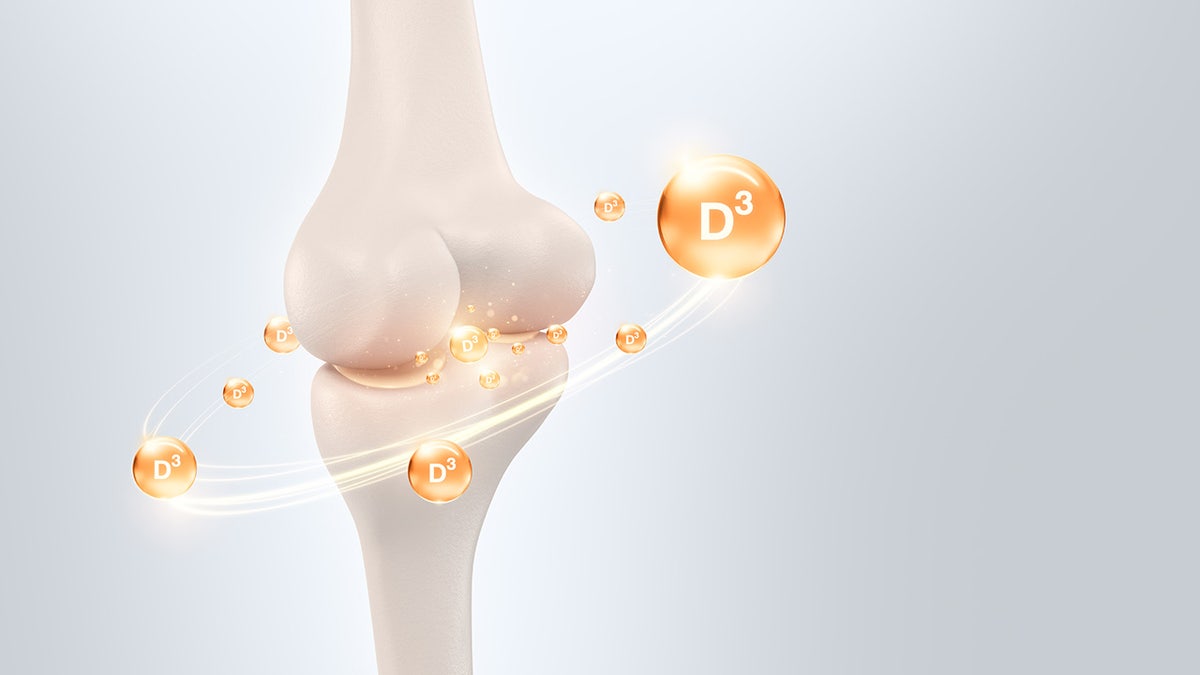
Vitamin D helps build and maintain healthy bones, according to Mayo Clinic. (iStock)
Vitamin D is most commonly produced in the body by exposure to direct sunlight, which means levels often dip during the less sunny winter months.
This new and developing research, however, suggests that the supplement won’t necessarily protect the bones of aging individuals.
“It’s important to evaluate older adults for any factors, including osteoporosis, that may increase their risk of falls or fractures.”
Katy Dubinsky, a New York pharmacist and founder and CEO of Vitalize, clarified that these conclusions are based on a review of “recent randomized clinical trials,” which collectively displayed “no significant difference in fall or fracture risk between those taking the supplements and those who did not.”
PANCREATIC CANCER PATIENT SURVIVAL DOUBLED WITH HIGH DOSE OF COMMON VITAMIN, STUDY FINDS
“It’s important to evaluate older adults for any factors, including osteoporosis, that may increase their risk of falls or fractures,” she told Fox News Digital.
“While vitamin D and calcium are key for maintaining strong bones, research suggests that routine supplementation in healthy, independent older adults may not effectively prevent falls or fractures.”
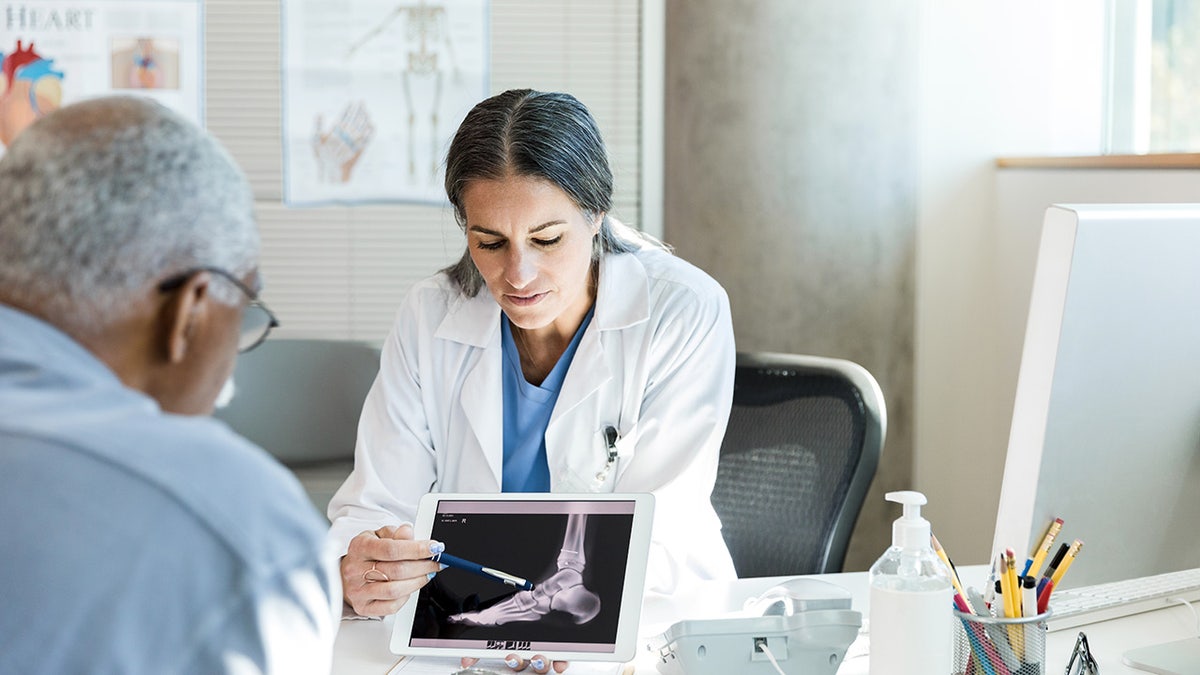
Regular doctor’s visits and physical activity are “proven, reliable measures that make a real difference” in maintaining bone health, one expert said. (iStock)
Dubinsky added that the best way to maintain strong bones and prevent injury is to prioritize physical activity and stay consistent with regular doctor’s visits.
CLICK HERE TO SIGN UP FOR OUR HEALTH NEWSLETTER
To protect bone health and decrease the risk of falls, the USPSTF recommends at least 150 minutes of moderate-intensity physical activity per week along with regular strength training exercises.
Falls are the leading cause of unintentional injury among older adults.
“Exercises that focus on balance and coordination can reduce the risk of falls, while resistance training strengthens bones and helps prevent muscle loss,” Dubinsky said.
For more Health articles, visit foxnews.com/health
About 14 million adults over 65 reported falling at least once in the previous year, according to 2020 data from the Centers for Disease Control and Prevention (CDC).

Falls are a leading cause of unintentional injury among older adults, the USPSTF reported. (iStock)
Unintentional falls caused 78 deaths per 100,000 people in 2021, making them “the leading cause of unintentional injury among older adults,” according to the USPSTF.
The task force stated on its website that recommendations made by the agency are “independent of the U.S. government.”
“They should not be construed as an official position of the Agency for Healthcare Research and Quality or the U.S. Department of Health and Human Services,” they wrote.
Fox News Digital reached out to USPSTF for comment.
-

 Politics1 week ago
Politics1 week agoCanadian premier threatens to cut off energy imports to US if Trump imposes tariff on country
-
/cdn.vox-cdn.com/uploads/chorus_asset/file/25782636/247422_ChatGPT_anniversary_CVirginia.jpg)
/cdn.vox-cdn.com/uploads/chorus_asset/file/25782636/247422_ChatGPT_anniversary_CVirginia.jpg) Technology1 week ago
Technology1 week agoInside the launch — and future — of ChatGPT
-
/cdn.vox-cdn.com/uploads/chorus_asset/file/25789444/1258459915.jpg)
/cdn.vox-cdn.com/uploads/chorus_asset/file/25789444/1258459915.jpg) Technology1 week ago
Technology1 week agoOpenAI cofounder Ilya Sutskever says the way AI is built is about to change
-

 Politics1 week ago
Politics1 week agoU.S. Supreme Court will decide if oil industry may sue to block California's zero-emissions goal
-
/cdn.vox-cdn.com/uploads/chorus_asset/file/25546252/STK169_Mark_Zuckerburg_CVIRGINIA_D.jpg)
/cdn.vox-cdn.com/uploads/chorus_asset/file/25546252/STK169_Mark_Zuckerburg_CVIRGINIA_D.jpg) Technology1 week ago
Technology1 week agoMeta asks the US government to block OpenAI’s switch to a for-profit
-

 Politics1 week ago
Politics1 week agoConservative group debuts major ad buy in key senators' states as 'soft appeal' for Hegseth, Gabbard, Patel
-

 Business6 days ago
Business6 days agoFreddie Freeman's World Series walk-off grand slam baseball sells at auction for $1.56 million
-
/cdn.vox-cdn.com/uploads/chorus_asset/file/23951353/STK043_VRG_Illo_N_Barclay_3_Meta.jpg)
/cdn.vox-cdn.com/uploads/chorus_asset/file/23951353/STK043_VRG_Illo_N_Barclay_3_Meta.jpg) Technology5 days ago
Technology5 days agoMeta’s Instagram boss: who posted something matters more in the AI age















